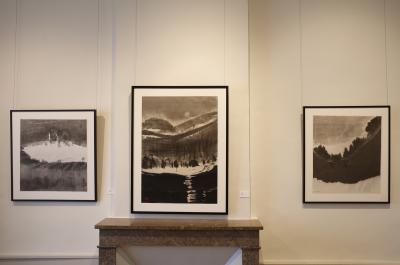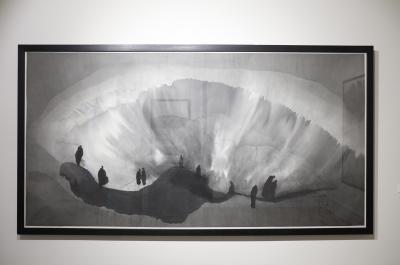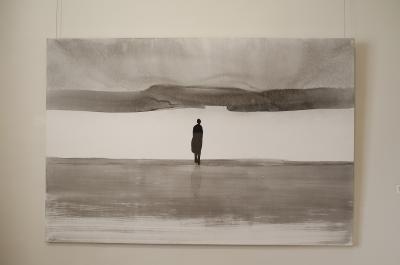Château
A. Gao Xingjian
"Appel pour une nouvelle Renaissance"
published at 21/01/2019
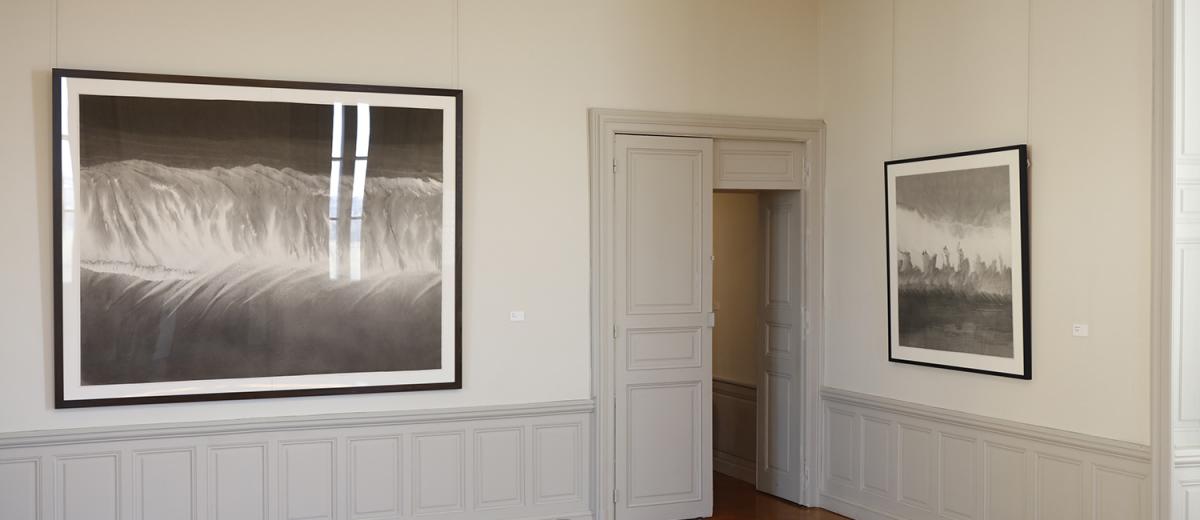
“With his 'Call for a new Renaissance', that proponent of total art Gao Xingjian is advocating a new way of thinking, in order to change the world and raise awareness through culture. Writer, painter, playwright, stage director and poet, Gao Xingjian is calling for a return to artistic creation without borders, multidisciplinary, non-utilitarian and non-“commoditised", exploring the complexities of the human soul in order to achieve perfect communion between hearts and minds." Chantal Colleu-Dumond
It is Gao Xingjian's graphic work that is on show as part of the Chaumont-sur-Loire exhibition. A French artist of Chinese origin and winner of the 2000 Nobel Prize for Literature, his Chinese ink creations explore a third path between figuration and abstraction: the world of his dreams. He seeks to bring time and space into painting. “A rich, highly refined tone is created by the flow of ink, opening up a wealth of visual possibilities capable of prompting true revelations. Painting also opens the doors to an inner journey; anywhere the imagination is up to exploring may be expressed in painting, and such expression is limitless […] If spatial relations have been modified in a painting, empty becomes full, black turns into something or nothing, and empty spaces into shining light. A vision very difficult to grasp through direct observation of nature, but in a black and white painting, it is possible to construct a space that takes the onlooker by surprise, that can only be seen in dreams: what else is this but an inner image?" Gao Xingjian, Pour une autre esthétique (For another Aesthetic), 2001.
“Gao Xingjian's paintings have undoubtedly opened up new horizons for painting in Indian ink and have also overcome the problems encountered by Western contemporary arts, blazing a new trail by revealing fresh perspectives for the art of painting. An inexhaustible series of mental images emerge, caught between the figurative and the abstract, opening a new chapter in the history of art." Liu Zaifu (Mingbao, 2015).
Between his native land's cultural heritage and Western aesthetics, his artistic practice brings a boundless sensibility to the fore. His imaginary landscapes reflect his literary genius, his works for the theatre and opera in particular. In June 2018, he published an essay in Italy entitled Per un nuovo rinascimento.
“He is not only an artist and multidimensional man of letters with few peers, he is also a thinker. And his thought goes beyond ridding himself of all ideological constraints, it is also completely independent and, in contrast to the approach taken by philosophers, does not seek to force creation and reflection into theoretical frameworks at any price. From start to finish, his thought is alive, open, never in search of what is known as “ultimate truth”. As he says himself, it is simply a matter of continuously deepening one’s knowledge of the world and human nature in order to replace philosophical ontology and all value judgements.” Liu Zaifu (Mingbao, 2015).
BIOGRAPHICAL NOTES
Gao XINGJIAN
FRANCE
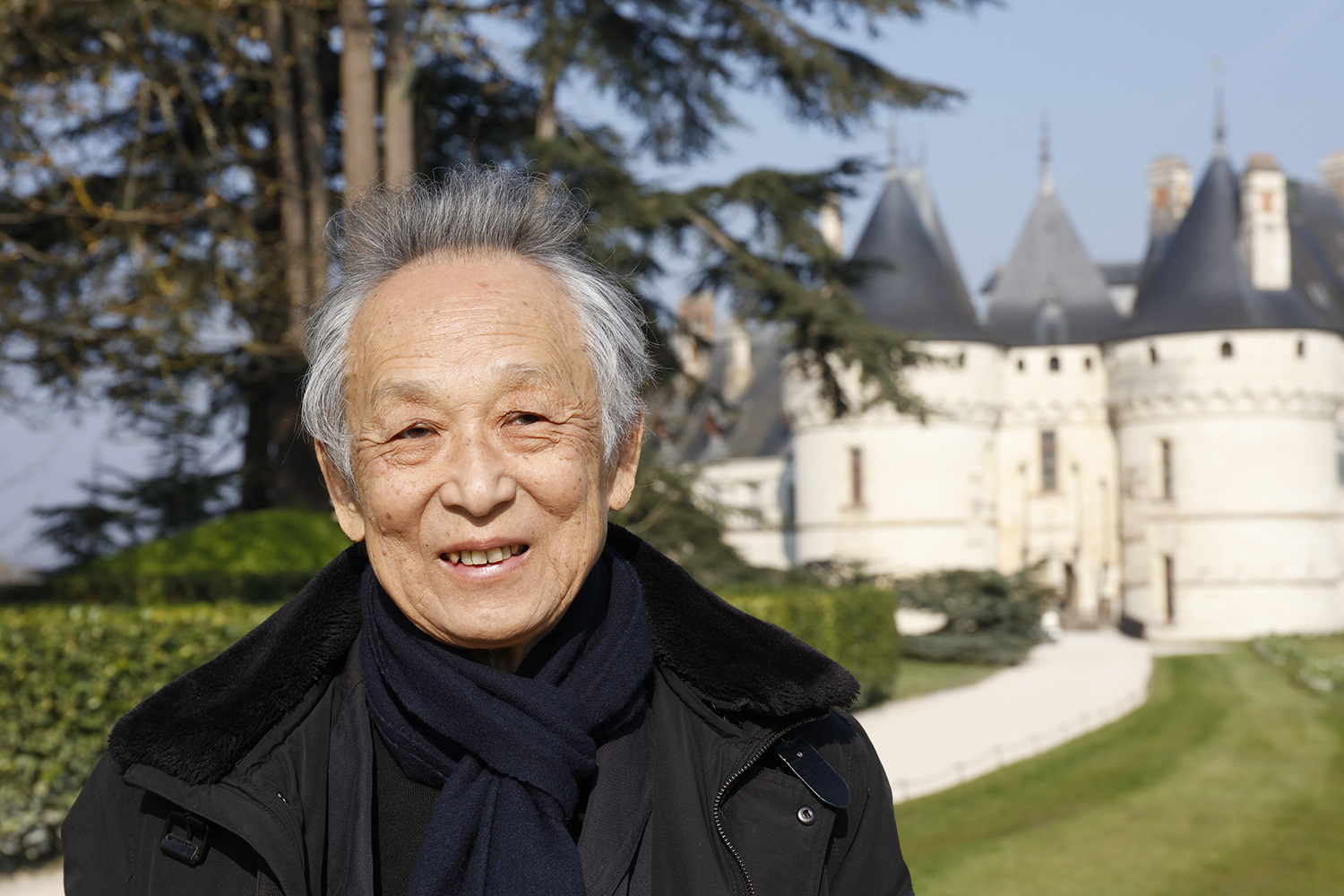
Gao Xingjian was born in Ganzhou, China, on 4 January 1940. His childhood was marked by the conflicts with Japan, which invaded Manchuria in 1931 and finally capitulated in 1945. From 1951 to 1957, he was a pupil at Nanking’s secondary school in China, where the painter Yun Zongyin taught him the techniques of watercolour and oil painting. In 1962, he obtained a certificate in the French language from Beijing’s foreign language institute and started working as a translator. During the Cultural Revolution (1966-1976), he was sent to the country to work the land between 1970 and 1975, when he returned to Beijing and resumed his work as a translator.
After Mao’s death in 1976, he was finally able to travel, visiting France and Italy in 1979. Between 1980 and 1987, he published numerous short stories, essays and plays which displeased the regime of the day. He presented his literary theories in his First Essay on the Art of the Modern Novel (1981), generating wide debate on modernism and realism. His productions at Beijing’s People’s Theatre found favour with the public: his play Juedui xinhao (Alarm Signal – 1982) marked the beginning of experimental theatre in China. The government, which did its utmost to counter “spiritual pollution”, condemned his satirical play Che Zhan (Bus Stop – 1983) on the foibles of Beijing society. In 1985, his play Yeren (Wild Man) was the subject of fresh polemics. He mounted a first unofficial exhibition in Beijing alongside the sculptor Yin Guanzong.
The international community lent him their support. Invited by the Berliner Kunstlerprogramm in Germany and by France’s Ministry of Foreign Affairs, he spent several months in Europe. His first solo exhibition, held at the Berliner Kunsterhaus Bethanien, was a success. In 1986, his play Bi’an (The Other Shore) was banned. In order to avoid harassment, he left the city for a year, making his way to Sichuan province and then to the East China Sea along Asia’s longest river, the Yang Tse Kiang. He left China in 1987 and settled in Paris. France granted him political asylum the following year.
In 1989, following the events in Tiananmen Square, he wrote Taowang (Escape), a play that led to a complete ban on all his works in China. He became a French citizen in 1997. Even before then some of his writings were in French.
Gao Xingjian was awarded the Nobel Prize for Literature in 2000, “for an oeuvre of universal validity, bitter insights and linguistic ingenuity, which has opened new paths for the Chinese novel and drama.”
A prolific, multifaceted artist from the very start of his career, he is a writer, playwright, poet, painter and stage and film director. He worked with oil paints up until 1978, since which year he has painted exclusively in Chinese ink.
